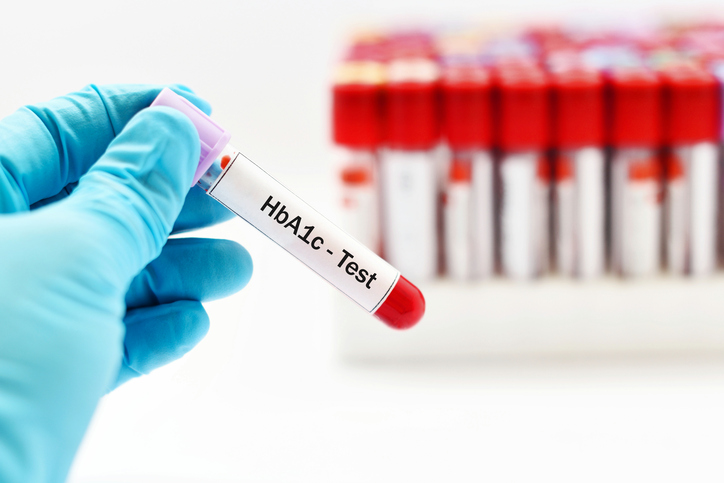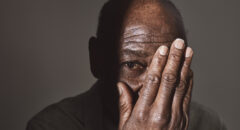 The A1C test is the primary test used for diabetes diagnosis and management. However, it may not be the best test to use in African Americans—particularly those with sickle cell trait.
The A1C test is the primary test used for diabetes diagnosis and management. However, it may not be the best test to use in African Americans—particularly those with sickle cell trait.
What is the AIC?
The A1C test—also called the hemoglobin A1c, HbA1c, or glycohemoglobin test—shows how much glucose is attached to hemoglobin, the protein in red blood cells that carries oxygen. Typically, red blood cells live for about three months. So, the A1C test is reflective of your average blood glucose (blood sugar) level over the past three months.
The A1C test is different from the blood glucose checks that you do every day—also known as self-monitoring of blood glucose (SMBG). It is important to keep in mind that each blood glucose result from SMBG provides information for only one point in time. You and your doctor need to use both the AIC and SMBG results to get a complete picture of your blood glucose control. The higher your A1C number, the higher your blood glucose levels have been during the past three months. Elevated levels of blood glucose can harm your heart, blood vessels, kidneys, feet and eyes.
A1C Test and African Americans
There are racial differences that your doctor should consider when using the A1C test results.
According to a study presented at the American Diabetes Association 76th Scientific Session, researchers found that glucose attaches to the red blood cell at a higher rate in African Americans than in Whites. For the same blood glucose level, the A1C was about 0.3 percent higher in African Americans than in Whites. In other words, for the same glucose level, an African American woman would have an A1C of 8 percent, but the White woman would have an A1C of only 7.7 percent.
Moreover, the A1C test can be unreliable for diagnosing or monitoring African Americans with sickle cell trait, sickle cell anemia or thalassemia—conditions that affect the red blood cell. Individuals in these groups have a less common type of hemoglobin known as a hemoglobin variant that can interfere with the A1C test. This interference can result in lower A1C values which can lead to a delay in diagnosis and treatment of diabetes. In fact, a recent study published in the Journal of the American Medical Association showed the diagnosis of prediabetes and diabetes based on A1C results was significantly lower among African Americans with sickle cell trait. When the researchers compared A1C results to fasting glucose or 2-hour glucose results, they found A1C results that were expected to be 6 percent were only 5.7 percent for African Americans with sickle cell trait.
People with sickle cell trait and other hemoglobin variants have no symptoms. If you have any of the following you may be at risk for having a hemoglobin variant:
- you are of African, Mediterranean, or Southeast Asian heritage
- members of your family have sickle cell trait or sickle cell anemia
- the results of your blood glucose test or SMBG don’t match the results of your A1C test
- your A1C result is different than expected
- your A1C result is very high—above 15 percent
- your most recent A1C result is very different from your last A1C result
If you have any of these risk factors, your health care provider can order other blood test to confirm whether you have a hemoglobin variant.
There are special A1C test available that can provide reliable, accurate results for people with a hemoglobin variant. You and your healthcare provider can also use your daily blood glucose readings to show how well controlled your diabetes is.
A1C Targets
diagnosis is 5.7 percent to 6.4 percent. You will be diagnosed with diabetes if your A1C is above 6.5 percent. The A1C goal for many people with diabetes is below 7 percent. However, depending on your diabetes history and general health your goal may be different. You should discuss your A1C target with your health care provider.









